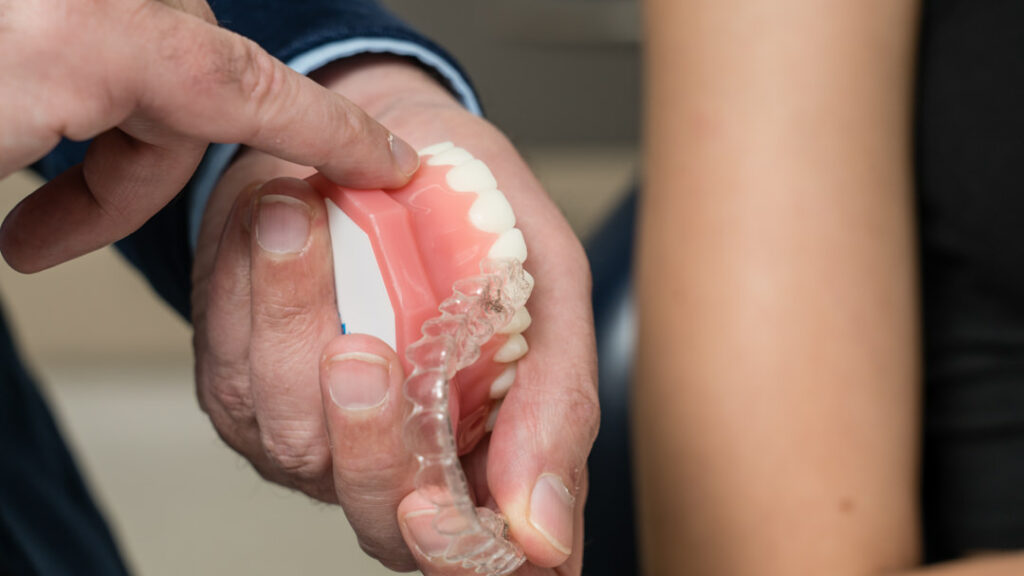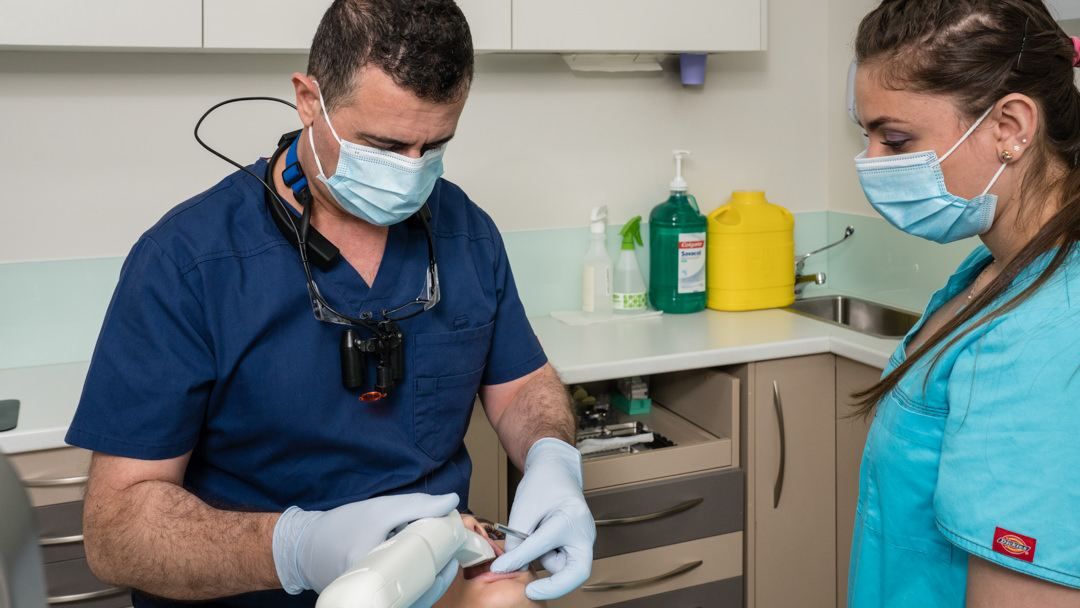
The Top 9 Most Common Causes of Toothaches
Top 9 Toothache Causes
Ah, the dreaded toothache. In the dark ages, people believed toothaches to be the result of witchcraft or a curse. And if you’ve experienced one lately it’s easy to understand why!
Luckily today we know the real causes of a toothache and the treatment options.
Why is a toothache so painful?
No, you’re not a wuss:). A toothache can cause severe tooth pain, and there’s a good reason for that.
Your head, face and teeth are richly supplied by the nervous system making it a very sensitive area. The inside of your teeth contain many nerves and therefore neural connections to the pain centres in your brain.
A bad toothache is your body sending out an SOS distress signal. It’s alerting the brain that something is wrong.
So here are the top causes of a toothache.
But first a disclaimer: this is not a way to diagnose what is causing your particular toothache. The only way to confirm the cause of a toothache is for a dentist to check your teeth and take x-rays.
-
Tooth Decay or Cavities
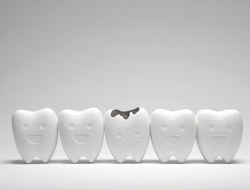
Along with the common cold, teeth decay is one of the most common human ailments and accounts for about 24% of all trips to the dentist.
Nearly half of all Australian children under age six have some tooth decay in their baby teeth. One in ten has at least one tooth with untreated tooth decay according to an Adelaide University study.
Australian adults (15 years and over) have nearly eight tooth fillings on average as a result of tooth decay.
But here’s the thing, in the early stages of tooth decay you won’t feel any pain. The first small lesion might just look like a stain or discolouration. Sometimes you won’t be able to see it at all if it’s on your back teeth or upper teeth.
If the decay is only on the outer surface of your tooth, what’s known as the enamel, there is no pain to alert you that something’s wrong. However, once it gets into your softer inner layers of the tooth – the dentin and pulp – that’s when it becomes painful and also more challenging to treat.
If your toothache has persisted more than two days then get in to see your dentist straight away!
Catching tooth decay early means we can usually just treat it with a tooth coloured filling or a sealant. At JustSMILE we have invested in laser technology so this treatment is quick with minor to no discomfort.
On the other hand, left untreated the decay can lead to an abscess (pocket of pus) forming on your tooth root which is not only painful but can lead to tooth loss.
-
Cracked or Chipped tooth
If you break or chip part of your tooth, you mightn’t feel any pain at first (especially with cracks), but it can lead to bacteria getting in and infecting your tooth. You’ll first get sensitivity to hot and cold and eventual pain when biting/chewing.
Cracked and chipped teeth are so common that I’ve written an entire post on the causes, symptoms and treatments in my “What happens if you ignore a broken or chipped tooth” post.
-
Gum Disease
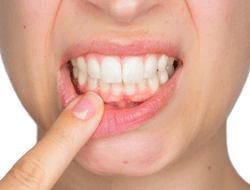
Gum disease is common and, you may be surprised to learn, the leading cause of tooth loss in adults. Gum disease causes sensitive, red, swollen gums and also tooth pain.
You may notice that your gums bleed and hurt during brushing and flossing. Those with gum disease tend to describe it as a consistent dull toothache.
Only your dentist can confirm if you have gum disease and advise you on the best gum disease treatment. The earlier gum disease is caught the better the chance of stopping it. If left untreated it will lead to bone loss around your tooth and possible tooth loss.
-
Sensitive teeth
Do you feel sharp tooth pain when you eat or drink hot or cold foods and drinks? Chances are you have temperature sensitivity (provided you are cavity free and don’t have a cracked/chipped tooth).
There many causes of sensitive teeth from worn down enamel to grinding of teeth. The best way to understand the reason for your tooth sensitivity is to visit your dentist and have them check for the cause and then prescribe the best treatment for you.
-
Teeth grinding & jaw clenching
Grinding teeth (bruxism or bruxing) is a common and growing problem. It’s thought to be caused predominantly by stress, anxiety and mental concentration but there are other causes too, and there is no clear-cut answer as to why some people do this habitually.
Prof. Christopher Peck, Dean of Dentistry at the University of Sydney recently said that “we’re all likely to have episodes of teeth grinding at some point in our lives”. Further, about one in ten Australians have “ongoing” bruxism.
Bruxing occurs when you involuntary clench or grind of the teeth and mostly occurs when you sleep but for some even when you are awake!
Heavy grinders wear down their tooth enamel and this causes tooth sensitivity and tooth pain. Grinding and clenching can also lead to a sore head and neck.
Like most dental related problems there could be many reasons you are bruxing so your dentist will need to do a clinical examination, take some x-rays and look for the most probable cause and treatment.
One of the most common ways to prevent damage to teeth in bruxers is for your dentist to make a special splint that you wear while you sleep called a nightguard.
-
Heavy-handed tooth brushing
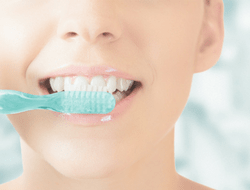
Do you buy a toothbrush and very quickly find that the bristles quickly are worn, bent and haggard? Aggressive brushing and flossing can lead to sensitive, irritated and painful gums. It’s even possible to damage where the gum attaches to the tooth and cause the gums to recede which results in further pain.
Always use gentle circular strokes and a soft brush and when brushing your teeth and gums. Your dentist will be able to visually check for any tell-tale signs of gum damage from vigorous brushing.
-
Impacted Wisdom Teeth
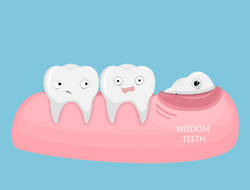
Our wisdom teeth – third molars – are the last to erupt at around the age of 17-24. For many, there just isn’t enough space in the jaw to allow the teeth to come through and they become impacted.
Impacted wisdom teeth are extremely painful. Your dentist will take a special 3-D x-ray of your jaw to see the wisdom teeth and decide the best treatment for you. In most cases, once they are infected and painful removing them is the best solution.
-
Damaged fillings
If a filling is damaged or falls out, it can expose the inside of the tooth making it sensitive to hot and cold and allow bacteria to get into the tooth. This can cause a toothache, and the best course of action is to have the damaged filling checked out and replaced.
-
Orthodontic treatment

This one is fairly obvious. Those who’ve had braces or clear aligners may have felt the discomfort from the gentle tooth movement. This tooth pain usually happens when the aligners are changed and should be fine within a couple of days. Make sure you discuss this with the dentist providing treatment so they can check for other problems.
Need a dentist Nearby?
Have a toothache and need a dentist ? Contact the JustSMILE team today. Emergency dental visits are typically seen and treated on the same day. We are also able to provide prescription-only pain relief medication for severe pain.

